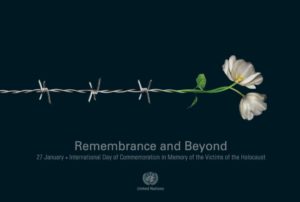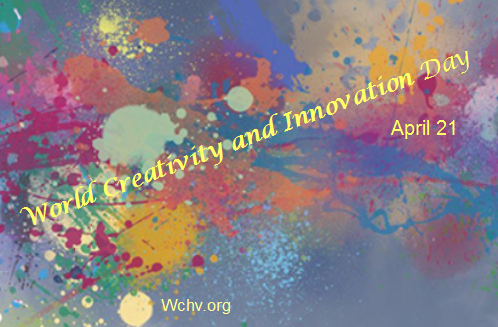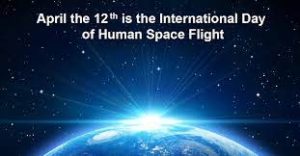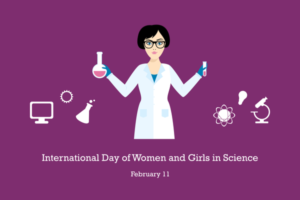 2021 Holocaust Remembrance Calendar of Events
2021 Holocaust Remembrance Calendar of Events
“Facing the Aftermath: Recovery and Reconstitution after the Holocaust”
The theme guiding Holocaust remembrance and education in 2021 is “Facing the Aftermath: Recovery and Reconstitution after the Holocaust”. It focuses on the measures taken in the immediate aftermath of the Holocaust to begin the process of recovery and reconstitution of individuals, community, and systems of justice. Integral to the process of reconstitution was the accurate recording of the historical account of what happened before and during the Holocaust.
Challenging the denial and distortion of the historical events was interwoven in the processes of recovery and reconstitution. The theme examines the contribution of the responses to the victims of the Holocaust, and of the survivors, to addressing the needs of the contemporary world, and to the historical record of the Holocaust. Against a global context of rising antisemitism and increasing levels of disinformation and hate speech, Holocaust education and remembrance is even more urgent, as is the development of an historical literacy to counter repeated attempts to deny and distort the history of the Holocaust.
Panel Discussion “Women and Genocide”
10:00 a.m. – 11:30 a.m.
Register here, https://bit.ly/36yam3y
What has been the impact of genocide on women? How did women respond? To what
extent did it matter whether you were a woman? Experts consider these questions.
Dr. Sara Cushman, Director, Holocaust Educational Foundation, Northwestern
University, will speak about women during the Holocaust; and Dr. Sarah E. Brown,
Executive Director, Center for Holocaust, Human Rights and Genocide Education,
Brookdale Community College will speak about women during the 1994 genocide
against the Tutsi in Rwanda.
Ms. Simona Cruciani, Political Affairs Officer, United Nations Office on Genocide
Prevention and the Responsibility to Protect, will examine atrocity crimes and gender,
and consider this in the light of genocide prevention. Ms. Nanette Braun, Officer-in-
Charge, Strategic Communications Division, United Nations Department of Global
Communications will serve as moderator. This is Episode 4 of the live discussion series
Beyond the long shadow: engaging with difficult histories.
Monday, 25 January 2021
Park East Synagogue Holocaust Commemoration Service
7:00 p. m.
Watch the service here
Park East Synagogue will host a virtual Holocaust Commemoration Service marking the
76th Anniversary of the Liberation of Auschwitz. United Nations Secretary General
António Guterres and Rabbi Arthur Schneier will convene for a discussion under the
theme “Survivors’ Plea – Holocaust Education”. The event will include the participation
of the diplomatic corps and feature Chief Cantor Yitzchak Meir Helfgot, Park East
Synagogue Choir and Maestro Russell Ger, Conductor.
Wednesday, 27 January 2021
Discussion “Lessons of the Holocaust – A UN Perspective on Global Antisemitism”
9:15 a.m. – 10:30 a.m.
Register here, http://bit.ly/3alw3WW
An event with H.E. Mr. Miguel Ángel Moratinos, High Representative for the United
Nations Alliance of Civilizations and UN Focal Point to monitor antisemitism. The event
is organized by B’nai B’rith International.
Memorial Ceremony marking the International Day of Commemoration in memory of the victims of the Holocaust
11:00 a.m. – 12:00 p.m.
Register here, https://bit.ly/3g3tTw0
The Holocaust memorial ceremony is organized jointly by the United Nations
Department of Global Communications and UNESCO, in cooperation with the
International Holocaust Remembrance Alliance. The event will include remarks by the
United Nations Secretary-General and the Director-General of UNESCO, as well as statements by high-level guests, a Holocaust survivor testimony and the memorial
prayers. The detailed programme will be announced closer to the date.
Panel Discussion “Holocaust Denial and Distortion”
12:00 p.m. – 1:00 p.m.
Register here, https://bit.ly/3g3tTw0
The online commemoration will be followed by a panel discussion on Holocaust denial
and distortion, with contributions of diverse experts in the field. The panel discussion is
organized together with UNESCO, and the International Holocaust Remembrance
Alliance.
United Nations Chamber Music Society Virtual Concert 7:00 p.m.
Watch on UN Web TV
On 27 January 2021, the anniversary of the liberation of the Auschwitz death camp, the UN Chamber Music Society of the United Nations Staff Recreation Council, will perform a virtual concert in memory of the victims of the Holocaust. The classical music programme will feature Jewish composers, to instill the memory of the tragedy in future generations to prevent genocide from occurring again.
Thursday, 28 January 2021
Panel Discussion on Nazi Rise to Power and the Weimar Constitution10:00 a.m. – 11:30 a.m.
Register here, https://bit.ly/3ovYncX
The panel will consider the democracy that existed before the Nazis came to power, and the extent to which the legal framework in place contributed to the rise of the Nazis, and the collapse of the Weimar Republic. The discussion is organized in partnership with the International Association of Jewish Lawyers and Jurists (IJL).
Thursday, 4 February 2021
Civil Society Briefing “Childhood after Atrocity Crimes:
Where Lies Hope for Peace, Dignity and Equality?” 11:00-12:30 a.m.
Register here, https://bit.ly/39Kzaau
The briefing will examine the approaches taken to support children who survived the
Holocaust and will consider how these approaches contributed to models adopted for
contemporary practice for working with young people who have survived atrocity crimes.
Thursday, 11 February 2021
Film Discussion “The Windermere Children”
11:00-12:15 p.m.
Register here, https://bit.ly/2Jmd8QX
“The Windermere Children”, a biographical drama, tells the little-known stories of some
of the 300 orphaned Jewish refugees who began new lives in England’s Lake District in
the summer of 1945 after the end of the Second World War, and the pioneering project to rehabilitate these child survivors. The film screening will be followed by a panel
discussion with film director, a Holocaust survivor and an historian.
 Celebrating the creative economy in 2021
Celebrating the creative economy in 2021


















